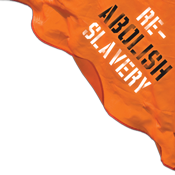“Today, in the United States, we have a foreign policy based primarily on fear. We move back and forth between new national color codes indicating the level of danger from terrorist attack. The Office of Homeland Security regularly moves the nation to Orange Alert — the second-highest state of risk from terrorist attack.
“September 11, 2001, changed our lives, and since then, we have become a nation always living in fear. We were terrified by the murderous attacks on the World Trade Towers and the Pentagon, and even after dramatic war victories in Afghanistan and Iraq, America is still afraid. Indeed, the war in Iraq was argued and justified, almost entirely, on the basis of fear. It was Trappist monk Thomas Merton who said many years ago, ‘The root of war is fear.’
“There are indeed real dangers prowling about our world. Prudence and strategic action are called for, as is much deeper reflection on the causes of these dangers. But fear can cause us to give up important things, to accept other things that violate our own best values, and even to do terrible things to other people. Fear has led us into a new foreign policy based on preemptive and potentially endless wars — which are not likely to remove our fears, and could make the dangers we face even worse.
“September 11 shattered the American sense of invulnerability. But instead of accepting the vulnerability that most of the rest of the world already lives with, and even learning from it, we seem to want something nobody can give us — to erase our vulnerability. We want it to just go away. If the government says more wars can do that, many people will say fine. If they say suspending civil liberties can do that, many will say fine. If they claim that spending more and more of our tax dollars on the military and homeland security will do it — at the expense of everything else — many will say fine. But we simply can’t erase our vulnerability, not in this world and not with the human condition being as it is. To be prudent and vigilant in the face of danger is good. But when a government offers to take away our vulnerability, it borders on idolatry.
[…]
“Bombing the children of Kabul and Baghdad created utter glee among the Osama Bin Ladens of the world, who are finally able to raise the armies of terror they’ve always dreamed of. It also deprived us of the moral high ground that the United States held in world opinion immediately after September 11 — for the first time in many years.
[…]
“In bringing to justice the few thousand estimated to be involved in murderous terrorism, our response must not inflame and infuriate the tens of millions more in the Arab world (and elsewhere) who, to use even former Secretary of State Colin Powell’s words, ‘hate our presence in parts of the world that they think we should not be in.’ That sentence must be explained for the American people. It means that many people in the world may not be mad at us for ‘our values,’ as the Bush White House continues to say, but for ‘our policies.’ But the U.S. policies that most anger people around the world are generally unknown to most Americans — and therein lies the problem with talking about this issue.
“Perhaps the religious community can play a crucial role here because it is itself an international community and not just an American one. We also should have the capacity for self-criticism and even repentance, while national governments are seldom good at either. The truth that most of the world knows is that the U.S. government has far too often supported military dictators in Latin and Central America, Asia and Africa who have murdered as many or more innocent people as Saddam Hussein. The truth is that the United States has not been an honest broker for Middle East peace and has not sought the proper balance between Israeli security and Palestinian human rights. The truth is that American and Western appetites for oil have led to a corrupt and corrupting relationship with despicable Arab regimes. The truth is that the United States sits atop and is the leader of a global economy in which half of God’s children still live on less than two dollars a day, and the United States will be blamed around the world for the structures of injustice that such a global economy daily enforces. To speak these truths is very hard, sometimes especially in American middle-class congregations, but speaking hard truths is part of the prophetic religious vocation.” (>>)





